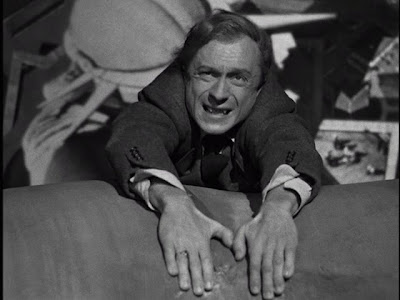 |
| Wet Hot American Summer, Part 2 |
Wanderlust (2012), which is a pretty uneven
entertainment, is interesting mostly as another bid for mainstream
success by members of the sketch comedy group The State,
whose heyday was 20 years ago. Given that the group had 11 members,
it is not surprising that they have divided into various writing and
performing teams, many with overlapping membership. Of all these
groupings, the most successful in the movie business has been the
screenplay team of Thomas Lennon and Ben Garant, the moving forces
behind the relentlessly unfunny Reno 911
and creators of the almost-as-unamusing Night in the Museum
series (the entertainment value of which is almostly entirely derived
from the odd-couple teaming of Dick Van Dyke and Mickey Rooney).
Lennon and Garant are also engaged to “punch up” other writers
scripts and have even published a book on how to sell out and write
crappy Hollywood movies.
Director
and co-writer David Wain and co-writer and actor Ken Marino have done
the most to keep the anarchic spirit of The State
alive, progressing from the episodic cult hit Wet Hot
American Summer through the
sketch comedy The Ten
(of which I am,as far as I can find, the world's only fan although I
think less than half of the movie works) to the mentorship of Judd
Apatow, who sponsored Wain and Marino's Role Models,
which made enough money to make Universal ask for another film from
the Wain-Marino team, again under the Apatow aegis.
Whereas
Lennon-Garant have mastered Hollywood formulas well enough to vomit
them back up between the covers of a book, Wain and Marino still have
to graft stray bits of stories from other movies onto their sketch
ideas in order to get their 90 minutes of entertainment to resemble a
movie. Most egregiously in Wanderlust,
they manufacture a crisis for the entire cast of characters very late
in the second act without a scrap of foreshadowing, then dismiss it
with the airiest of deus ex machinas,
almost as if to acknowledge that narrative is a stupid waste of time
in their eyes. From interviews with the creators, it is evident that
they write by proceeding from ideas and concepts rather than
characters, a procedure which is painfully obvious in the finished
work.
Moreover,
when it comes to the jokes, Wain and Marino veer rapidly from
drastically overstating and repeating their jokes to throwing them
away so as to be almost invisible. Endless amounts of time are spent
on toilets in this movie, with little additional comic effect after
the first statement of the joke. On the other hand, one of the best
laughs in the film is invisible as Justin Theroux dismisses Paul
Rudd's categorization of his group as a “commune.” “Communes”
he scoffs, just means “hippies smoking pot and playing guitars”
as he leans against a doorway through which we see and hear a room
full of hippies smoking pot and playing guitars. There is no cut-in,
no take, no signal to the audience that there has been a joke, which
is admirable, but perhaps self-defeating.
The
single best comic performance (other than Alan Alda, who gets better
and better at kidding his own persona) is by the film's editors, David Moritz and David Nassau who create and improve innumberable jokes with some
superb cuts and juxtapositions. In fact, the very first out-loud laugh in the film involves the cut into the title card itself.
The question remains as to whether Wain and Marino will ever successfully fuse their sketch-oriented form of humor, based on wildly exaggerated characters and an improvisatory freedom with a real story in which real characters wrestle with real stakes. In The Silent Clowns, Walter Kerr described Harold Lloyd as an "architect of sympathy," building the gags in his films into a narrative structure that virtually forced the audience to feel for the main character and want his dreams to be realized. What made Lloyd (and Chaplin and Keaton) great is that the narrative push in their best films was not imported from exterior sources but grew up out of the characters and the visual comedy they were prone to, given the quirks and proclivities of those characters. Character, narrative and gag were all fused, rather than being pasted together. That takes a lot of time and a lot of films (Lloyd may have made 100 short comedies before arriving at the character who made him great.) I hope Mr. Wain and Mr. Marino have the opportunity and the ability to realize that fusion.





No comments:
Post a Comment